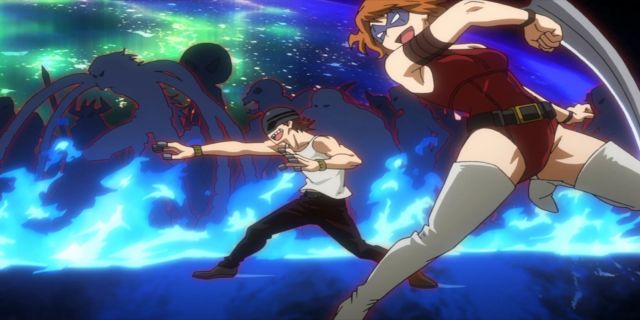Highlights
- Quirk Restriction Laws were introduced to regulate and limit the usage of quirks, requiring citizens to register their powers. Refusal to cooperate could label someone as a villain.
- Only Pro Heroes, who are trained in specialized high schools, are allowed to use their quirks in public. Some Pro Heroes hide their powerful quirks to prevent villains from exploiting them.
- Quirk Licensing allows certain professions to use their quirks in public after obtaining a license. Infrastructure-related quirks are highly sought after. Quirk Counseling for elementary school students aims to teach responsible usage of powers and prevent deviant behaviors.
With quirks suddenly emerging among the general populace, societal rules and regulations became extremely intricate and complex. Governments were marred with dangerous superpowers propagating among the public at a rapid speed, forcing them to adapt their laws to this new world order. Some quirk wielders sided with villainy while others took on the role of vigilantism, leading to utter chaos within society.
To limit quirk usage and restrict the unsupervised usage of these powers, governments introduced an entirely new set of regulations called the Quirk Restriction Laws. These laws dictate the usage of quirks by regular folk, banning them from using their quirks in public almost entirely. While these laws are set in place for the safety and protection of common folk, some tend to disagree with this notion.
RELATED: Most Cynical My Hero Academia Characters, Ranked
Regulating the Use of Quirks

The first and foremost goal of governments across the globe was to devise a method of regulating quirk usage, since this was the primary issue ravaging societies after the advent of these meta abilities. For this purpose, it is now mandatory for all citizens to have their quirks registered, including the specific details of their powers. Any changes in a quirk or new discoveries must also be updated to ensure the government remains aware of its citizens’ powers. However, those who refuse to cooperate or fail to register their quirks could possibly be deemed as villains.
Since regulating quirks is the foremost priority, it’s only natural for using quirks in public to be banned and deemed illegal. The only exceptions to this rule are Heroes and Heroes-in-training. Using a quirk for self-defense or to prevent harm is also permitted, though citizens can still be punished for taking matters in their own hands unnecessarily.
Depending on their severity and scale, some quirks also require additional regulation and limitation. This includes quirks with large-scale effects, such as Glamour, a quirk that can debilitate a room full of people in an instant. While most rules under Quirk Restriction Laws are heavily enforced, this one in particular tends to be ignored by the public as using quirks in public is commonplace. However, causing widespread damage by misusing quirks is still considered a major offense.
Rules for Pro Heroes

The birth of quirks gave way to an entirely new profession – Pro Heroes. These professionals are trained to use their quirks for the benefit of society, and they are the only group of individuals with permission to use their quirks in public under the guidelines set by Quirk Restriction Laws. However, becoming a Pro Hero is no easy feat as aspirants must enroll in a specialized high school that specifically offers hero training.
The government’s quirk database is accessible by all citizens, yet some heroes have their quirks hidden from the public’s eyes. This is the case for Pro Heroes who have extremely powerful quirks, or abilities that can be exploited by villains if they become aware of the actual intricacies of a specific power. All Might and Star and Stripes’ powers were kept classified by their respective nations for this very purpose, as the truth behind their powers could potentially allow villains to best them.
Quirk Licensing

Heroes are not the only group of individuals with permission to use their quirks in public as a few other professions and careers also grant people the ability to freely use their quirk. However, this is only possible after licensing their quirks for a specific profession, such as Uraraka using her Gravity quirk to lower construction costs for her family’s business.
RELATED: My Hero Academia: Uraraka’s Quirk, Explained
Commercializing quirks for the general populace has proven to be rather fruitful for governments, making Quirk Restriction Laws quite lax for licensing. Quirks that aid infrastructure and development are higher in demand, with electricity quirks being the most sought after contenders.
Restricting Powers Through Quirk Counseling

Under Quirk Restriction Laws, the government has mandated ‘Quirk Counseling’ for all elementary school students. True to its namesake, Quirk Counseling revolves around the idea of teaching children the responsible usage of their powers from an early age. The program further incorporates quirk training for children with newly-awakened powers. Some powers can be overwhelming, while others can be extremely complex in nature, requiring a counselor to step in and ease the process.
Another purpose of this mandatory counseling is to lessen any deviant behaviors that could potentially be a result of a quirk. Some quirks may manifest psychopathic tendencies in individuals, forcing them to side with villainy. Himiko Toga’s quirk is a perfect example of this phenomenon as it required ingesting another person’s blood. While Quirk Counseling isn’t the final solution to this issue, it still serves as a method of curbing the illegal and rampant usage of quirks in public.
Quirk Counseling is a necessary step for quirk bearers as these powers have a tremendous effect on one’s self-esteem. Heteromorphs or mutant-type quirk wielders are the most vulnerable group as they undergo changes in their physical appearance, leading to possible psychological distress. Therefore, Quirk Counseling becomes a necessity to quell such sentiments among children with new powers.
My Hero Academia is available to stream on Amazon Prime.











Leave a Reply